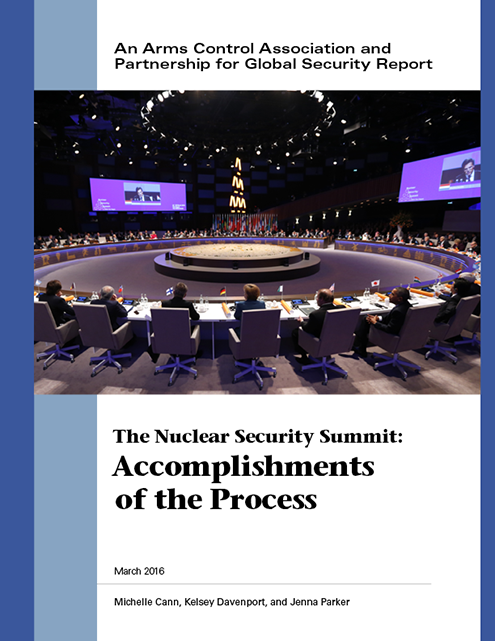March 2016
An effective new tool for improving global nuclear security is in danger of being lost, according to a new report by the Arms Control Association (ACA) and Partnership for Global Security (PGS). The report concludes that regular, voluntary commitment-making by states has resulted in many of the Nuclear Security Summits’ most important accomplishments, but it is not clear if world leaders will choose to preserve this tool after the six-year summit process ends on April 1.
The new report from ACA-PGS features 53 country profiles that demonstrate how the summits’ political momentum and commitment-making model has resulted in meaningful actions by all of the participating countries. Every state has made at least one national commitment to strengthen nuclear security and some countries have been prolific in their pledges, particularly Canada, Japan, Kazakhstan, Netherlands, Norway, Philippines, Republic of Korea, Spain, United Kingdom, and United States. Additionally, more than 90 percent of the participating countries issued voluntary, national progress reports detailing how they were implementing their responsibilities and breaking an important taboo against information sharing.
Among the summits’ chief accomplishments are the recovery or elimination of more than 1,500 kilograms of highly-enriched uranium and separated plutonium, the establishment of dozens of new training and support centers, and updates to national laws on nuclear safety and security by most states. The report also proposes that the commitment-making model of diplomacy developed at the summit has itself become a central summit outcome, pointing to its adapted use at the most recent climate conference in Paris.

